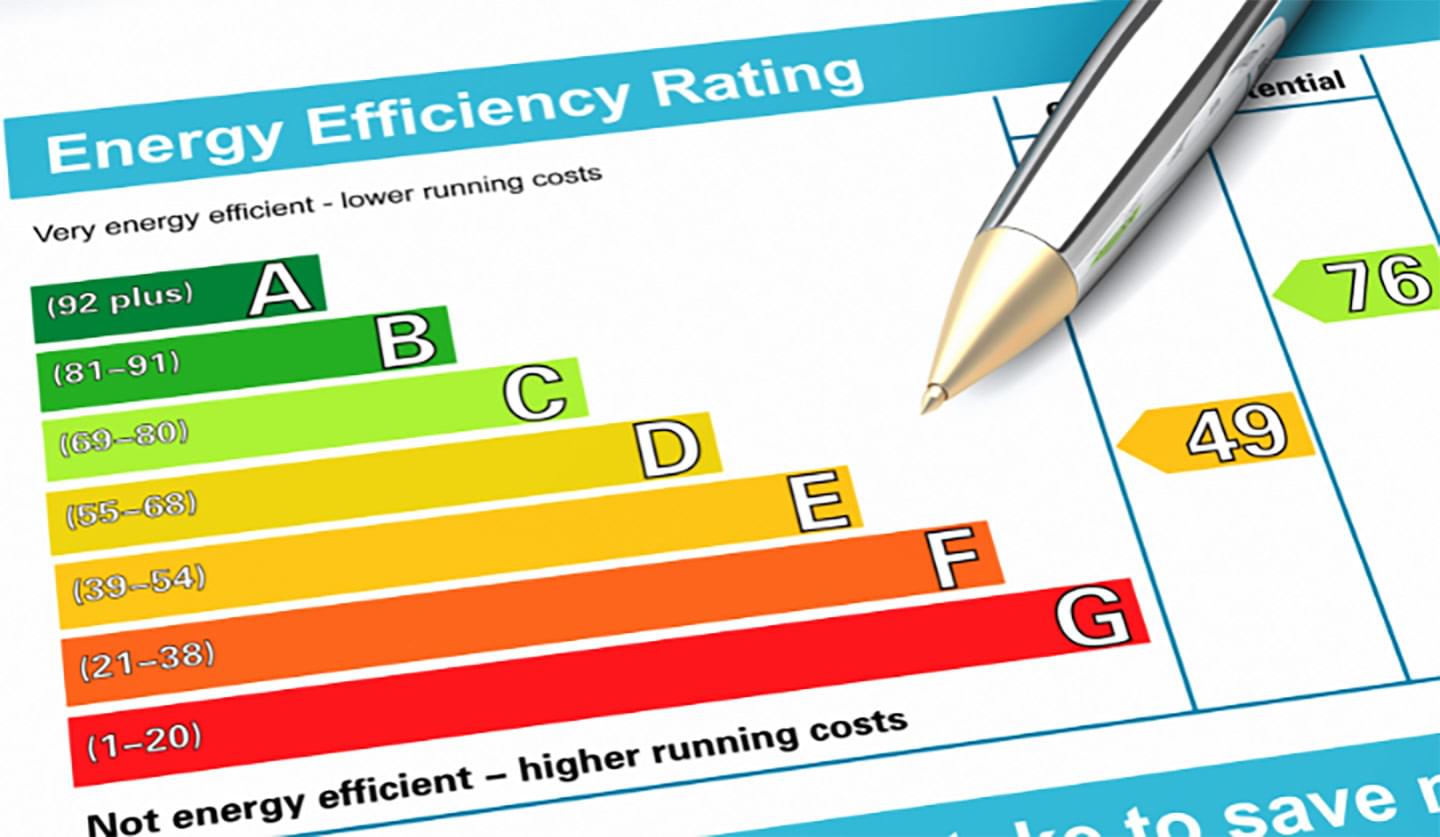In recent years, the UK government has been working hard to make homes more efficient and reduce carbon emissions, in a bid to reach its net-zero target by 2050. To help achieve these goals, the government has introduced new regulations for Energy Performance Certificates (EPCs).
An Energy Performance Certificate (EPC) provides information about a property’s energy efficiency and CO2 emissions, and is legally required whenever a property is built, sold, or rented. It gives a property an energy efficiency rating, from A (most efficient) to G (least efficient), and is valid for 10 years.
What are the changes to EPC regulations?
Currently, Minimum Energy Efficiency Standards state that properties require an EPC rating of ‘E’ or above to be legally let. The Government has since announced new standards for England and Wales, to become law by 2028, whereby all rental properties will need an EPC rating of ‘C’ or above. This means that letting agents, housing associations, and developers will need to take action to ensure that their properties meet requirements.
How will the new regulations impact landlords?
The new regulations present a number of challenges to landlords; generally the average landlord may not have awareness of what the new legislation means for them, doesn’t have a team to support them, and/or doesn’t have the budget to implement the renovations required to meet the new standards.
Currently, around two-thirds of homes in the private rental sector have an energy rating of D or below, which means over 3 million privately rented properties in England and Wales will require work to meet government targets.
One of the main ways to improve a property’s EPC rating is by making energy efficiency improvements, such as installing insulation, upgrading heating systems, or fitting double glazing. However, it has been estimated that the cost of upgrading a property to a ‘C’ rating could cost as much as £10,560 per home, which understandably causes a problem for property owners.
To add to this, the penalty for not having a valid EPC will also be raised from £5,000 to £30,000 by 2025; so it’s vital that landlords take action as soon as possible.
What is the Eco4 Government Scheme, and how can it help?
The Energy Company Obligation (ECO4) is a government energy-efficiency scheme, designed to provide funding to help property owners make energy efficiency improvements, with a particular focus on low-income households and those living in fuel poverty. The scheme offers grants and loans to cover the cost of improvements, as well as advice and support to help property owners identify the most effective measures to take.
Homeowners, private renters and social housing tenants can qualify for a grant, but the property must have an EPC rating of D, E, F, or G. To be eligible, tenants must have an income of less than £31,000 or claim any of the following benefits: Pension Credit, Universal Credit, Income-based Jobseekers Allowance, Income-related Employment & Support Allowance, Housing Benefit, Tax Credits (Child or Working Tax Credit), and/or Income Support. This isn’t widely known, however, and more needs to be done to educate on the eligibility criteria.
Letting agents, housing associations and developers should promote the scheme to their landlords, who can then encourage their tenants to apply for funding. By helping their clients to access this funding, they can support the government’s energy efficiency goals while also improving the value and attractiveness of their properties.
How will the regulations impact the property market in general?
The new EPC regulations could prompt a shift in demand for more energy-efficient properties, leading to an increase in the value of properties with high energy efficiency ratings, and a decrease in the value of properties with low ratings.
Research suggests that the proposed changes are already altering the buying preferences of landlords, with two-thirds of landlords saying they are less likely to invest in properties rated D or lower in the future.
Changes to EPC ratings will also have a knock-on effect on the new build market, as developers will need to meet the new energy performance standards. This will, of course, lead to more energy-efficient building practices, however it could also increase the cost of new build properties, too.
While the new EPC regulations present challenges to landlords, the Eco4 Government Scheme offers an opportunity for property owners to access funding and support to make energy efficiency improvements. By taking advantage of this scheme, letting agents, housing associations, and developers can support the government’s energy efficiency goals and improve the value and attractiveness of their properties.
The impact of these new regulations on the property market remains to be seen, but with the right support and incentives, they have the potential to drive the demand for more energy-efficient properties and create a more sustainable future for all. As such, Helpthemove can play a crucial role in facilitating compliance with the new EPC regulations and promoting the Eco4 Government Scheme to its clients.
For more information on how Helpthemove can help you, call 0161 399 0247.



